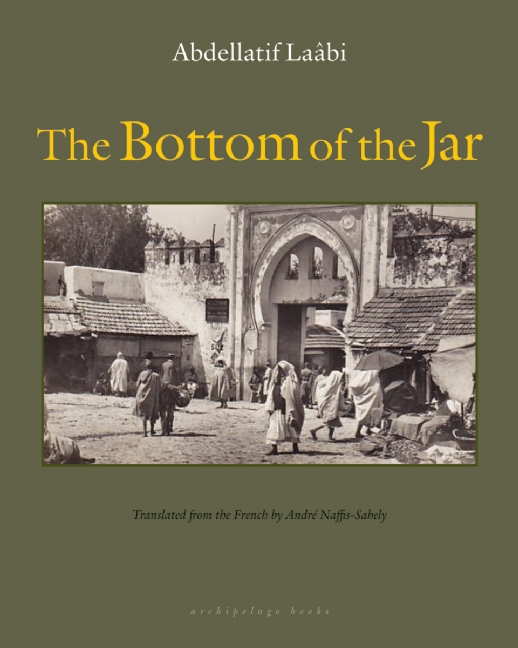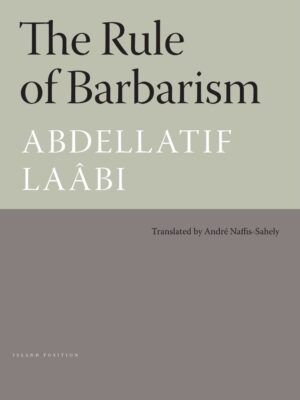The Bottom of the Jar
Translated from French by André Naffis-Sahely
Published: March 2013
$9.99 – $17.00
“Created with gentleness and with fury, with words that thrill the soul, that cry out with the urge to live, with hope and with suffering.”
—Jeune Afrique
“An authentic and beautiful bildungsroman in which life and political struggle take place in one space, with the demand for Moroccan independence joining the need for personal emancipation in a sublime way.”
—Quotidien National
“A valuable book: inventive and philosophically amusing, it assures us that despite dark times, human virtue still shines in Maghreb with a clarity that is unquestionably brightest in the old city of Fez.”
—J. M. G. Le Clézio, winner of the Nobel Prize
“At once classic (in tone) and modern (in form), The Bottom of the Jar is imbued with humor and a sensibility that gives it a certain magic. The result: two hundred fifty pages of pure pleasure.”
—La Vie Economique
Fire. Germination. Birth. Blood. All these themes are burnished and honed image by image until they echo through Abdellatif's book.... Abdellatif Laâbi, as you will see, is a member of the same cell as Dostoevsky, Hikmet, Soyinka, Cervantes...
The great power and subtlety of the work lies in the fine balance it strikes between that Peter Pan–like sensitivity, vulnerability and imagination, and the brutality of the real world, history and politics.
One of the most evocative portraits of Fez that has ever been written ... deserves a wide and attentive readership ... The writer has a fine eye for the telltale details of daily life, for the personality traits of colorful characters, for the labyrinthine urban layout of the town and for the mores of the period ... André Naffis-Sahely’s translation is lively and even, often, joyful.
Fragments of a Forgotten Genesis also returns us to the shared historical beginnings of poetry and religious text, the shared tools of verse and image... Though religious texts have also been famously open to widely differing interpretations, those interpretations have tended to view themselves as corrective and final. No such finality will be possible here. The richness of imagery and slewing of the narrative in more than one direction work against any such tactic.
Laâbi's poetic voice consistently raises a song of possibilities above the dirge of cruelty.
That Laâbi recognizes the link between understanding our time and understanding memory is profound, and should serve as an example to other authors.
As the Arabic saying Laâbi quotes in the book goes: “Fez is a mirror.” In this case it’s a mirror pointed directly at today; at the Arab Spring uprisings; at 9/11, the ‘war on terror’ and the United State’s invasion of Iraq and Afghanistan; and at the conflict between Israel and Palestine. Reflecting how terrorism has shaped world culture, and how, in turn, our world shapes us, The Bottom of the Jar is ultimately testimony to how language can reshape both. When it comes to “raising a song of possibilities above the dirge of cruelty”, Laâbi is still without rival.
Watch Abdellatif Laâbi and his translator, André Naffis-Sahely, read at the Free Word Centre in London.
Listen to translator André Naffis-Sahely in this recording of a panel discussion entitled ‘Lost in translation, found in poetry’ at the May 2013 international festival of poetry Dancing with Words.
Read an interview with author Abdellatif Laâbi in the Quarterly Conversation.
For more on Laâbi and barbarism, check out this essay in The Paris Review Daily.


